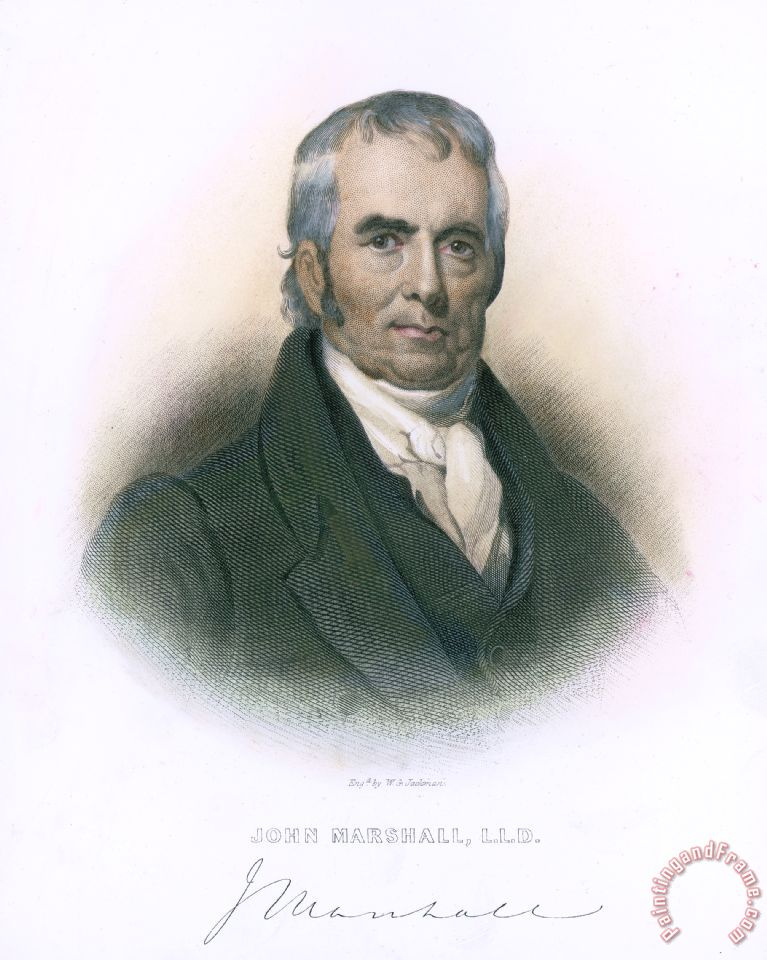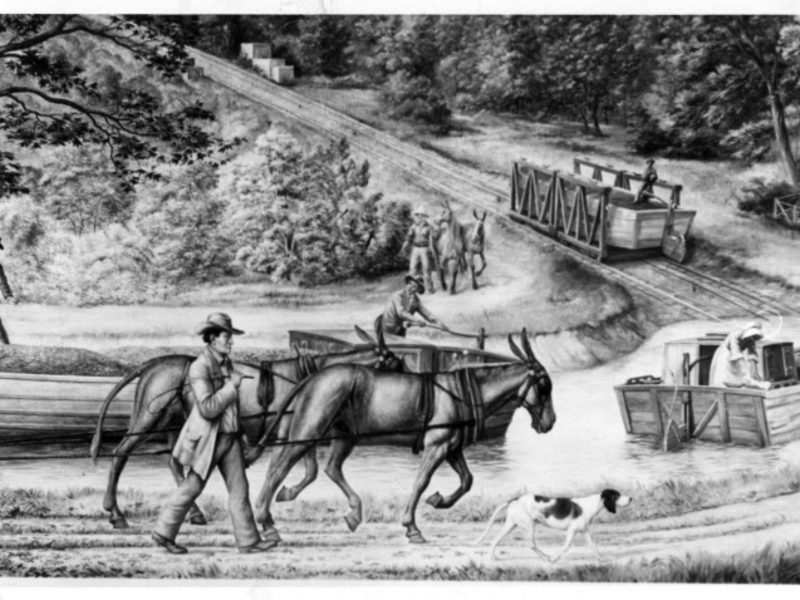He had a complicated relationship with slavery
Although he owned slaves for the majority of his life, Marshall held the opinion that slavery was bad, opposed the Atlantic slave trade, and feared that the Union would become more and more divided as Southern attention on the issue grew. As a wedding gift, John Marshall's father Thomas Marshall gave him his first slave, Robin Spurlock, in 1783. Spurlock would later serve as Marshall's manservant and manage his household in Richmond. Upon Marshall's passing, Spurlock was given the now-apparently cruel choice of accepting manumission on the condition that he immigrate to another state or to Africa (at age 78 and leaving his still-enslaved daughter Agnes) or choosing his master/mistress from.
In the early years of his profession, in the 1790s, Marshall took on a few pro bono cases involving slaves, frequently attempting to secure the freedom of people of mixed races. Marshall won the case in the Virginia High Court of Chancery, in an opinion written by his teacher George Wythe, but that court's holding was later limited by the Virginia High Court of Appeals. Robert Pleasants, who sought to carry out his father's will and emancipate about ninety slaves, was the client Marshall represented in what is arguably his most well-known anti-slavery case. Marshall also personally freed Peter, a black man he had bought, in 1796. The emancipation certificate for Jasper Graham, which was mandated by John Graham's will, was also signed by Marshall in 1822.
Marshall raised concerns about widespread emancipation following slave uprisings early in the 19th century, in part because he was afraid that many free Blacks might stage a revolution. Additionally, Virginia established a legislation ordering liberated black people to leave the state in 1806. Marshall favored sending black people to Africa for free. To pursue that objective, Marshall joined the American Colonization Society in 1817. Associate Justice Bushrod Washington served as the organization's national president until his passing, and Clerk of the Supreme Court Elias Caldwell served as the group's longtime secretary. Marshall bought a life membership two years later, established the Richmond and Manchester Auxiliary in 1823 (becoming its president), and donated $5,000 in 1834 when the group was having financial difficulties. In 1825, as Chief Justice, Marshall wrote an opinion in the case of the captured slave ship Antelope, in which he acknowledged that slavery was against natural law, but upheld the continued enslavement of approximately one-third of the ship's cargo (although the remainder were to be sent to Liberia)










